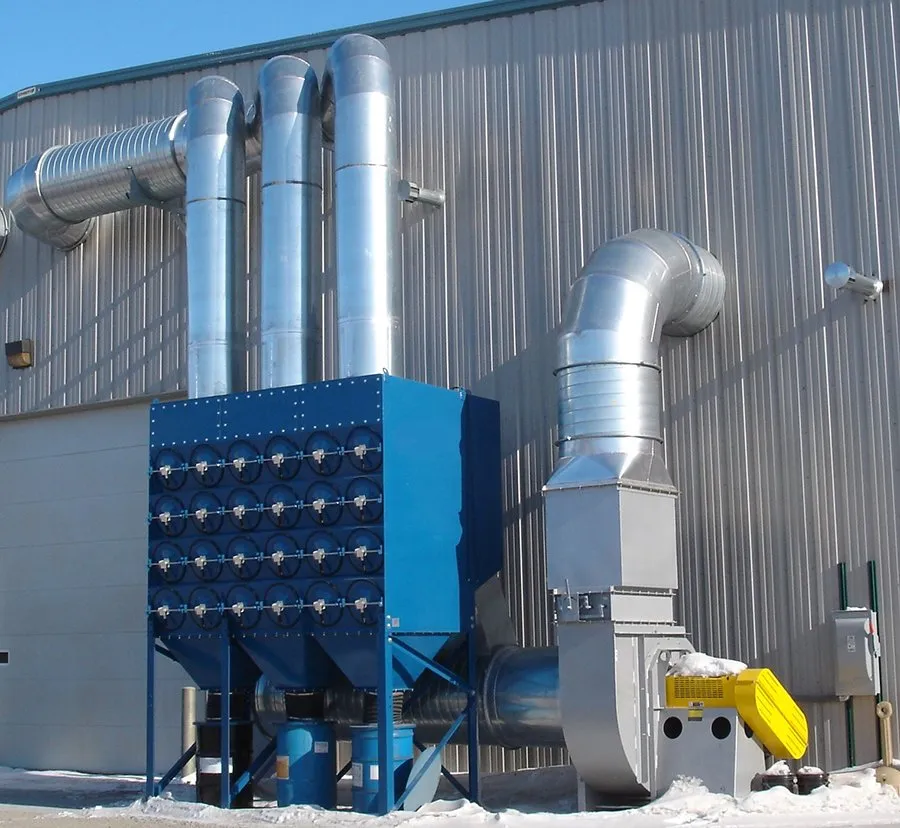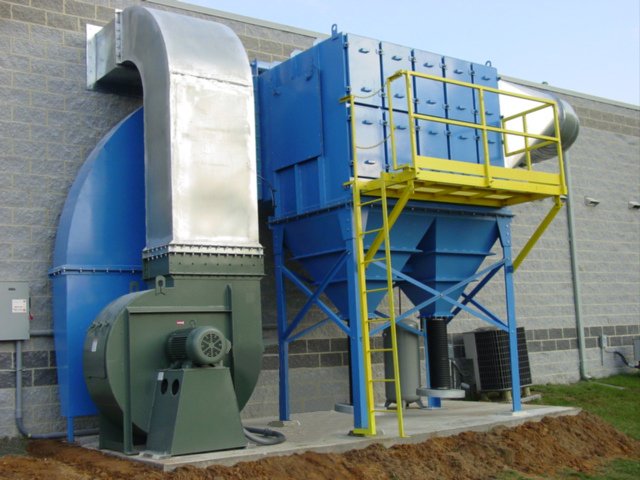What are the types of Dust Collectors, Functions and it’s benefits?
What are Dust Collectors?
Dust collectors play a crucial role in maintaining clean and safe environments in various industries. From woodworking shops to manufacturing facilities, these devices are designed to capture and remove airborne particles, ensuring better air quality, worker health, and overall productivity. In this blog, we’ll dive deep into the world of dust collectors, exploring their types, benefits, and applications.

Types of Dust Collectors
Cyclone Dust Collectors: Cyclone collectors use centrifugal force to separate heavier particles from the air stream, depositing them into a collection bin. They are effective for larger particles and can handle high volumes of dust.
Baghouse Dust Collectors: Baghouse collectors use fabric filters to capture particles. They are efficient for fine dust and can be customized with different types of filter bags for specific applications.
Cartridge Dust Collectors: Cartridge collectors use pleated filters to capture dust. They are compact, suitable for small spaces, and offer easy maintenance.
Wet Scrubbers: Wet scrubbers use water to capture and neutralize dust particles, making them suitable for applications with explosive or hazardous materials.
Electrostatic Precipitators: Electrostatic precipitators use electrical charges to attract and capture dust particles, making them ideal for high-efficiency particle collection.
Benefits of Dust Collectors:
Improved Air Quality: Dust collectors prevent the release of harmful particles into the air, creating a healthier work environment and reducing the risk of respiratory issues among workers.
Compliance with Regulations: Many industries are subject to air quality regulations. Dust collectors help businesses meet compliance standards and avoid fines.
Enhanced Equipment Longevity: Dust particles can damage machinery and equipment over time. Dust collectors prevent the accumulation of particles, leading to longer equipment life.
Increased Worker Productivity: Clean air reduces distractions and discomfort among workers, leading to increased productivity and better focus on tasks.
Applications of Dust Collectors:
Woodworking: Dust collectors are essential in woodworking shops to capture sawdust and wood particles, preventing fire hazards and maintaining air quality.
Manufacturing: Dust collectors in manufacturing facilities prevent dust buildup from compromising product quality and employee health.
Metalworking: Metal dust and fumes in welding and grinding operations are efficiently captured by dust collectors, reducing the risk of respiratory issues.
Pharmaceuticals: Dust collectors maintain clean environments in pharmaceutical production, ensuring product purity and worker safety.
Food Processing: Dust collectors prevent contamination in food processing facilities by capturing particles and maintaining hygienic conditions.
Conclusion:
Dust collectors are indispensable tools in a wide range of industries, ensuring clean air, regulatory compliance, and improved working conditions. With various types catering to specific needs, these devices enhance productivity, protect equipment, and prioritize the health and safety of workers. Whether in woodworking, manufacturing, or other applications, investing in quality dust collectors is a smart choice for a cleaner and more efficient work environment.


